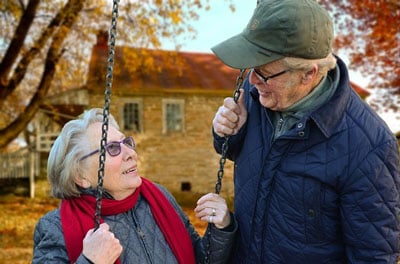 It has been recently suggested, by JAMA Oncology, that seniors may be getting too many health screenings. As a caregiver of a senior, it might be assumed that any health screening is in the best interest of the individual. However, there may be some screenings that are unnecessary.
It has been recently suggested, by JAMA Oncology, that seniors may be getting too many health screenings. As a caregiver of a senior, it might be assumed that any health screening is in the best interest of the individual. However, there may be some screenings that are unnecessary.
Previous Recommendations for Screenings
Only a handful of years ago, the suggested health screenings for seniors age 50 and up were too numerous. Men and women were encouraged to be screened for high blood pressure, elevated cholesterol, diabetes, colorectal cancer, vision loss, hearing loss, and depression. Immunizations also top the list for both men and women, though generally people associate vaccinations with children. In addition, women were encouraged to be screened for breast cancer, cervical cancer, and osteoporosis. The list for men also included screening for abdominal aortic aneurism if they were smokers.
Current Recommendations for Screenings
Medline Plus suggests that seniors should not be screened if they have 10 or fewer years left to live. This is especially true for cancer screenings in seniors. Unfortunately, there is not a foolproof calculator that can determine life expectancy, so making the decision to bypass screening can be tricky. It may be difficult for busy doctors to explain life expectancy to their patients, so if a patient shows interest in screening, it may be easier to go ahead with it rather than discuss how many more years they are expected to live.
What Screening Does
To put things into perspective, screenings look for problems. If a problem is found, a doctor's next course of action is to suggest treatment (medication for cholesterol, diet changes for pre-diabetic conditions, chemotherapy, etc.). Oftentimes, treatment causes undue stress on elderly individuals who would rather continue to live their lives to the best of their ability.

Some individuals would rather forego treatment and enjoy their lives while they can.
Some screenings may be more problematic than the conditions for which they are bring examined. For example, colon polyps can take up to 20 years to become cancerous. Colonoscopies after age 80 can lead to heart attack and intestinal perforation. Screening for cancer is done so that tumors can be detected before symptoms appear. In elderly patients, tumors may be detected that would not be expected to cause any harm. If tumors are detected, the patient may opt for treatment, which is likely to be more problematic than the tumors themselves.
Mutual Agreement
What it boils down to is that the decision regarding screening should made mutually by the elderly patient, their caregiver, and their doctor. Harvard Medical School suggests that the patient and caregiver ought to be informed of the risks of the tests as well as the steps that would be taken after screening. Whether screening is an option or not, all individuals should do their best to prevent problems from forming by:
- Exercising regularly
- Maintaining a healthy weight
- Not smoking or using other tobacco products
- Avoiding the use of alcohol
- Eating fruits, vegetables, and whole grains

Speaking with your healthcare provider is absolutely
necessary for determining what screenings are in your best interest.
Talk To Your Doctor
Doctor's office visits oftentimes feel rushed. It is easy to forget what is important to talk about. This video helps explain what information to share with your doctor and what questions to ask in order to promote the best healthcare for your care receiver. As a caregiver, it can be helpful to bring a notebook to each appointment with a list of medications, questions, concerns, and so forth.
mmlearn.org offers a large library of free videos for caregivers, covering topics pertaining to senior care. Whether you are a healthcare professional or a family caregiver, if you are caring for an older adult we know that you will find mmlearn.org an essential learning and guidance tool for all of your caregiver training needs. Access our free online caregiver videos here.
